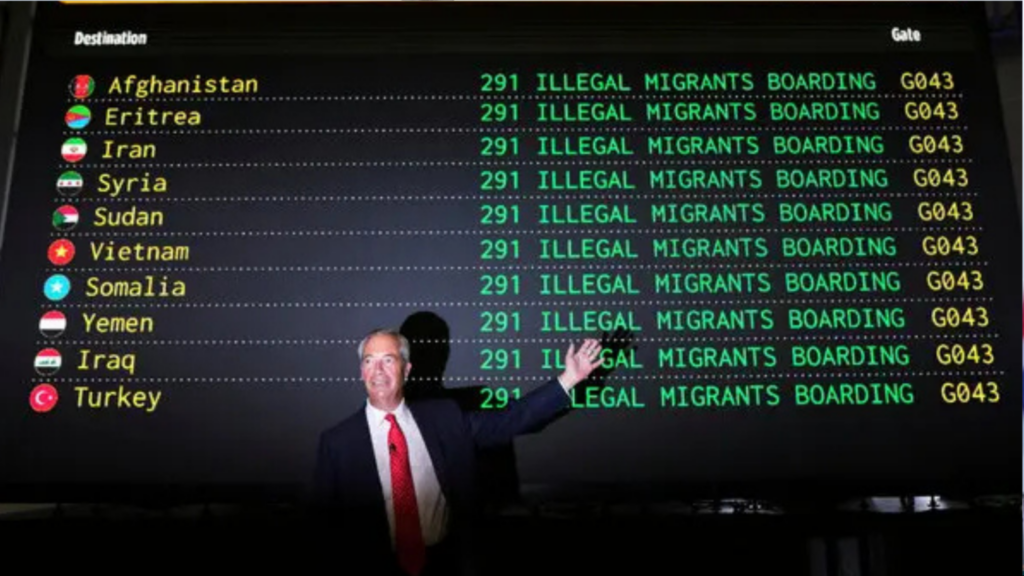Under Biden, the ‘Special Relationship’ Is Stronger Than Expected
When Joe Biden was elected president of the United States, many observers thought the US-UK ‘special relationship’ was in a for a bumpy ride. British Prime Minister Boris Johnson, some argued, would struggle to develop a close relationship with Biden, especially since the American president had called Johnson a “physical and emotional clone” of Donald Trump. And while the United Kingdom talked up the prospects of a post-Brexit trade deal with the United States, the Biden team made it clear it would not be a priority for Washington.
Yet nearly two months into the Biden Administration, there has been a surprising alignment between Washington and London. The UK has put on hold its effort to secure a trade deal and the two countries have come together around an agenda focused on common interests and global purpose.
Coming Together on China:
The recent US-UK alignment is particularly noticeable with regards to China. In the last year, the UK has taken an increasingly tough approach to relations with Beijing. It has restricted Huawei’s access to Britain’s 5G market and offered 3 million Hong Kong residents the option to settle in Britain. It has also taken a tough stance on human rights, taking measures to ensure UK firms do not profit from human rights abuses in Xinjiang province.
This all lines up with Biden’s own hawkish approach to China. While using different rhetoric, the US president has followed in the footsteps of his predecessor by maintaining a tough line against Beijing and calling on allies to do the same. But the UK is not just toeing Washington’s line on China. There are several policy areas where London, not Washington, has taken the lead. For example, the UK has already applied to join the Comprehensive and Progressive Trans-Pacific Partnership (CPTPP) while the Biden Administration finds itself tied down by a Congress skeptical of ambitious regional trade deals.
Alignment in Other Areas:
London and Washington have also taken similar positions in other policy areas. The UK has seized the initiative in fostering cooperation between democracies by floating the idea of a D10 grouping of the world’s major democracies. As this year’s chair of the Group of Seven, it has invited Australia, India, and South Korea to attend the group’s annual summit in June. This lines up well with Biden’s own idea of holding a Summit of Democracies to strengthen democratic solidarity globally.
The UK has also demonstrated it is ready to back its ideas with hard power. In November, Prime Minister Johnson’s government announced an increase in defense spending of £4 billion a year over the next four years, the biggest spike in defense spending since the end of the Cold War. That will solidify Britain’s position as the leading defense spender in Europe and the second largest in NATO. Britain is also preparing to deploy the aircraft carrier HMS Queen Elizabeth to the Indo-Pacific as part of a CSG21 carrier strike group later in 2021. This is all welcome news for leaders in Washington that have long called for their European partners to shoulder more of the burden on defense.
Partners of First Resort?
The alignment between London and Washington is also interesting given the current state of the broader transatlantic relationship. Biden’s election brought high hopes for a renewed transatlantic partnership. But the President and his team viewed Germany and the EU, not the UK, as Washington’s go-to partners going forward. Without a seat at the table in Brussels after Brexit, Britain was seen as simply less important to US interests.
But fast forward a few months and the picture looks quite different. Take relations with China. While Biden has continuously called for Western democracies to form a united front against Beijing, the EU has shown little interest. Instead, leaders in Brussels have charted their own course. Rather than consulting with the incoming Biden Administration, the EU has pushed forward with a controversial EU-China investment deal that will do little to hold China accountable for its human rights abuses. On Russia as well, Washington and Brussels do not see eye-to-eye. Despite protests from the White House, Germany is moving forward with the completion of the Nord Stream 2 pipeline. The UK, meanwhile, has taken a tough stance on China and labelled Russia a top security threat. So, while Biden continues to push for stronger US-EU cooperation, he is starting to realize that right now his most reliable partner lies in London, not Brussels.
References:
Landler, Mark (2020), “Boris Johnson Pledges to Admit 3 Million from Hong Kong to U.K,” The Guardian. Available at: https://www.nytimes.com/2020/06/03/world/europe/boris-johnson-uk-hong-kong-china.html [Accessed 9 March 2021]
Reuters Staff (2020), “Britain Bans New Huawei 5G Kit Installation from September 2021,” Reuters. Available at: https://www.reuters.com/article/us-britain-huawei-idUSKBN28A005 [Accessed 7 March 2021]
Sabbagh, Dan (2020), “UK Defense Now Has £16.5bn coming. But where is it going?” The Guardian. Available at: https://www.theguardian.com/politics/2020/nov/19/uk-defence-now-has-165bn-coming-but-where-is-it-going [Accessed 6 March 2021]
Timsit, Annabelle (2021), “Was the Investment Deal Europe Signed with China Worth it?” Quartz. Available at: https://qz.com/1956673/the-eu-china-investment-deal-broken-down/ [Accessed 7 March 2021]
Wintour, Patrick (2021), “US Warns Nord Stream Pipeline is ‘Russian Geopolitical Project,’” The Guardian. Available at: https://www.theguardian.com/world/2021/mar/18/us-warns-nord-stream-pipeline-is-russian-geopolitical-project [Accessed 7 March 2021]
“The Military Balance 2020,” Institute for International Strategic Studies. Available at: https://www.iiss.org/publications/the-military-balance/military-balance-2020-book [Accessed 7 March 2021]
“U.K. Applies to Join Huge Pacific Free Trade Area CPTPP,” Department for International Trade. Available at: https://www.gov.uk/government/news/uk-applies-to-join-huge-pacific-free-trade-area-cptpp [Accessed 7 March 2021]



